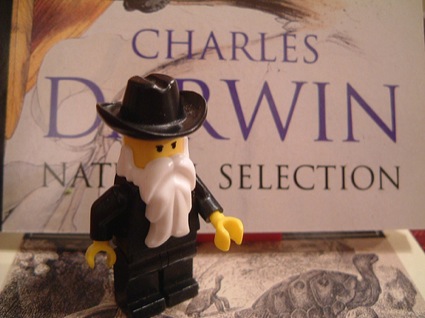My four-year-old daughter asked this out of the blue yesterday. We were sitting in the minivan, waiting for Mom to return from the grocery store.
Can you condense all of your faith, theology, and the gospel into a short answer a child could understand?
I opened my mouth to say, “Well, you go to heaven to live with Jesus”. That’s what most people would have told me as a child. But I stopped myself for a moment and thought.
From reading a lot of N.T. Wright, I’m pretty convinced that God is going to redeem both heaven and earth and that we’ll live here, not in some ethereal city of gold in outer space.
Also, I know from even the most basic eschatology of the bible, that we actually wait until the fulfillment of the redemption of mankind before Jesus resurrects all of us for the final judgment and glory. Nobody is quite sure what happens in the meantime. Paul calls it sleep. Some have come up with more elaborate holding-tanks like purgatory. Come to think of it, Jesus calls it sleep too. Everyone laughed at Jesus when he said the little sick girl had fallen asleep when everyone clearly knew she was stone cold dead.
Also, not EVERYONE goes to heaven to live with Jesus. Whether they choose to or God chose them or some mix of both, not everyone makes the cut. Universalism is not the gospel.
I didn’t want to feed her watered down pseudo-truth. But obviously any kind of theology talk would be useless at her age. I really had to stop and think for a sec. I’d never put it into those words before.
I finally came up with:
“Well, when you die, it’s like going to sleep. You die and they put you in the ground to sleep for a really long time. And someday, Jesus will come and wake everyone up! If you love Jesus, he’ll take you to live with him forever. But if you don’t love Jesus than you’ll just be alone.”
“And just your bones will be left?”
“Yeah, your body will turn into dust and just your bones will be left. But that’s OK because when Jesus wakes you up, you’ll have a new body.
“Do sometimes people die when they get really old?”
“I hope I die when I’m really old. Sometimes it’s sad when someone dies when they are really young because they didn’t get to live a whole long life. And sometimes it’s sad when people die because we’ll miss them. But that’s OK because we’ll see them again when Jesus wakes everyone up.”
In hindsight, I think this was a pretty good answer for now. She seemed to accept it.

